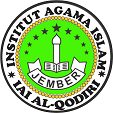An Analysis of Remote Environment on the Students Speaking Skills: Insight from SMKN Yaqin 2 Darul Qurán, Jelok Buso
Abstract
This study investigates the impact of a remote educational environment on the English-speaking skills of students at SMKN Yaqin 2 Darul Qur’an, Jelok Buso, Indonesia. Speaking is a core language skill essential for communicative competence, yet students in rural areas often struggle due to a combination of linguistic, psychological, and environmental barriers. Using a descriptive qualitative approach, data were gathered through observations, interviews, and documentation to explore how factors such as limited vocabulary, grammar deficiencies, low motivation, mother tongue interference, and minimal English exposure affect learners' oral proficiency. The findings reveal that students face both knowledge-related and affective challenges, which are further compounded by contextual constraints including inadequate infrastructure, infrequent use of English outside the classroom, and cultural dominance of the local language. Despite these obstacles, the research highlights potential improvements through interactive teaching strategies, structured lesson design, and enhanced access to English media. The study underscores the importance of environment-sensitive pedagogical approaches to support speaking skill development in rural EFL contexts.
Published
2025-08-11
How to Cite
Islam Assasaki, B. (2025). An Analysis of Remote Environment on the Students Speaking Skills: Insight from SMKN Yaqin 2 Darul Qurán, Jelok Buso. Al Qodiri : Jurnal Pendidikan, Sosial Dan Keagamaan, 23(2), 345-357. https://doi.org/10.53515/qodiri.2025.23.2.345-357
Section
Articles
Copyright (c) 2025 Bayu Islam Assasaki

This work is licensed under a Creative Commons Attribution-ShareAlike 4.0 International License.





